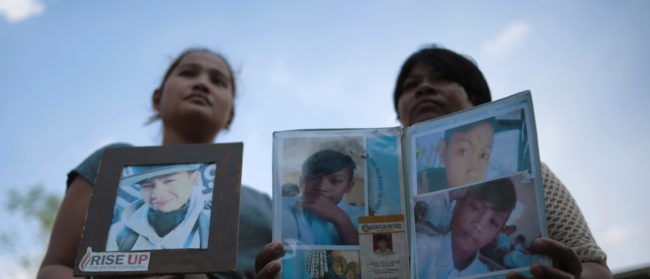Marniati Ningsi Bobo is stranded in paradise.
The young woman had previously left her home in Sumba, one of the poorest regions in Indonesia, for better prospects in the tourist magnet of Bali.
But with the collapse of global tourism amidst the Covid-19 pandemic, Bobo is now one of many Indonesians stuck on Bali, where the tourism industry – which accounts for about 50% of the island’s GDP – has been devastated. With internal migration restricted by the Indonesian government and a welfare system that requires citizens to be in their home region in order to be beneficiaries, many are left in limbo on Bali without an income or the support of their families.
Bobo lost her job in March and has since relied on a friend for food and a place to stay. While some workers on the island had enough money to return to their homes elsewhere in the archipelago, Bobo was not so lucky.
“I am far from home,” she lamented. “Thankfully there are good people here who are helping me, and letting me stay with them for now. But I don’t know what to do.”
Bobo was working in a warung – a small cafe/restaurant – on the cliffs at Uluwatu on Bali’s Bukit Peninsula. But with the island closed to tourists since April, soon after Indonesia began reporting cases of Covid-19, the warung closed. It’s a common story in the tourism-dependent island.
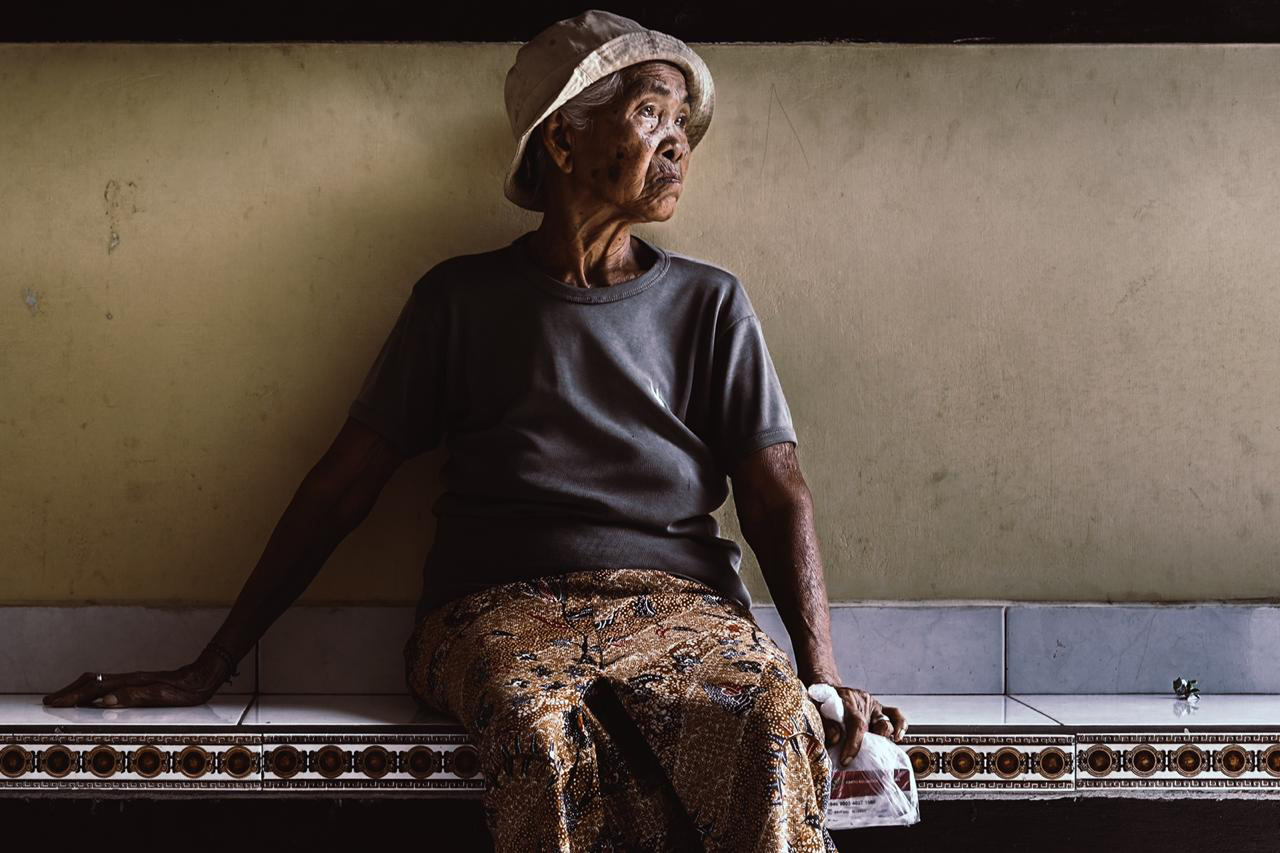
An elderly Indonesian recipient of food aid at a village in the Tabanan Regency. Photo: David Biner
She says it’s a different story in Sumba, an island that is not as dependent on tourism and where her parents are still able to find some work. One of the largest islands in East Nusa Tenggara, Sumba is a Christian-majority region of more than 500 islands.
Dr Taufiq Tanasaldy, Senior Lecturer of Asian Studies and Indonesian Coordinator at the University of Tasmania in Australia, says it is not always easy to find work in Nusa Tenggara, causing many – like Bobo – to leave the province to find work elsewhere in the country or abroad.
“The majority of the people are poor. Even if they want to work locally, it is not suitable for farming, they have to go to work elsewhere,” Dr Tanasaldy said.
On April 24, the Indonesian government banned domestic commercial and charter flights, sea transportation and long-distance passenger trains until June in an attempt to prevent citizens from participating in Eid al-Fitr events and celebrations.
“This has been a common issue for those working in the tourism industry which has been crippled due to the Covid-19 outbreak,” said Pingkan Audrine Kosijungan, a researcher at the Centre for Indonesian Policy Studies.
Since the outbreak began in Indonesia, Kosijungan said, there’s been a 46% drop in nationwide tourist numbers from February to March, and a 64% drop compared to the year prior. March also saw a 65% drop in visitor arrivals at Bali’s Ngurah Rai Airport.
Bali’s economy is highly dependent on tourism. In an effort to bounce back from the economic impact of Covid-19, the Ministry of Tourism and Creative Economy announced on May 15 that a Cleanliness, Health and Safety (CHS) programme will be implemented in tourist regions to accelerate the recovery of the tourism sector after the pandemic.
Bali has 487 confirmed cases, and five deaths. Indonesia-wide there are some 27,500 confirmed cases, and around 1,600 deaths so far. According to Worldometer, Indonesia has tested 1,253 people per 1 million, one of the lowest rates in the world.
Around 1,700 people who lost their jobs in Bali returned to their homes in East Java in order to access the social safety net programme
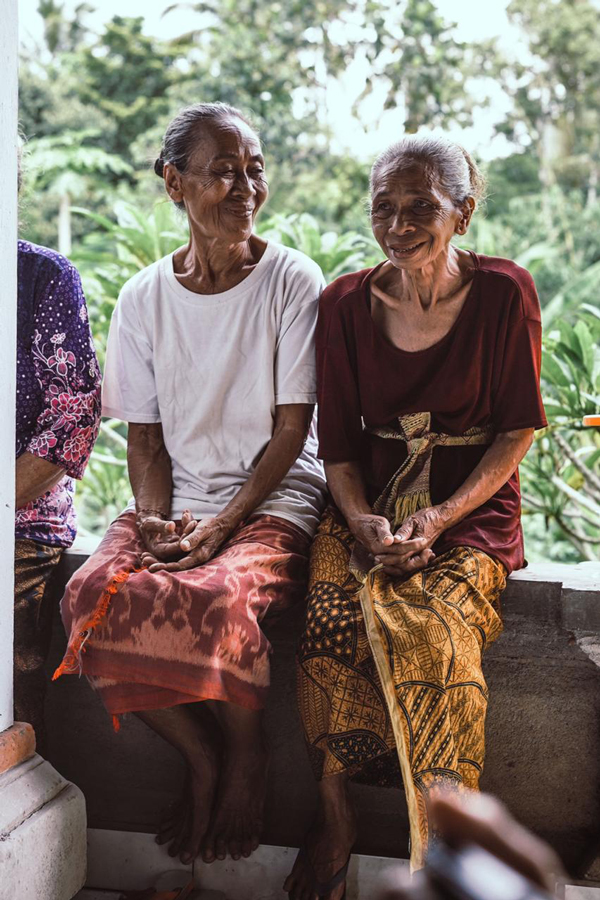
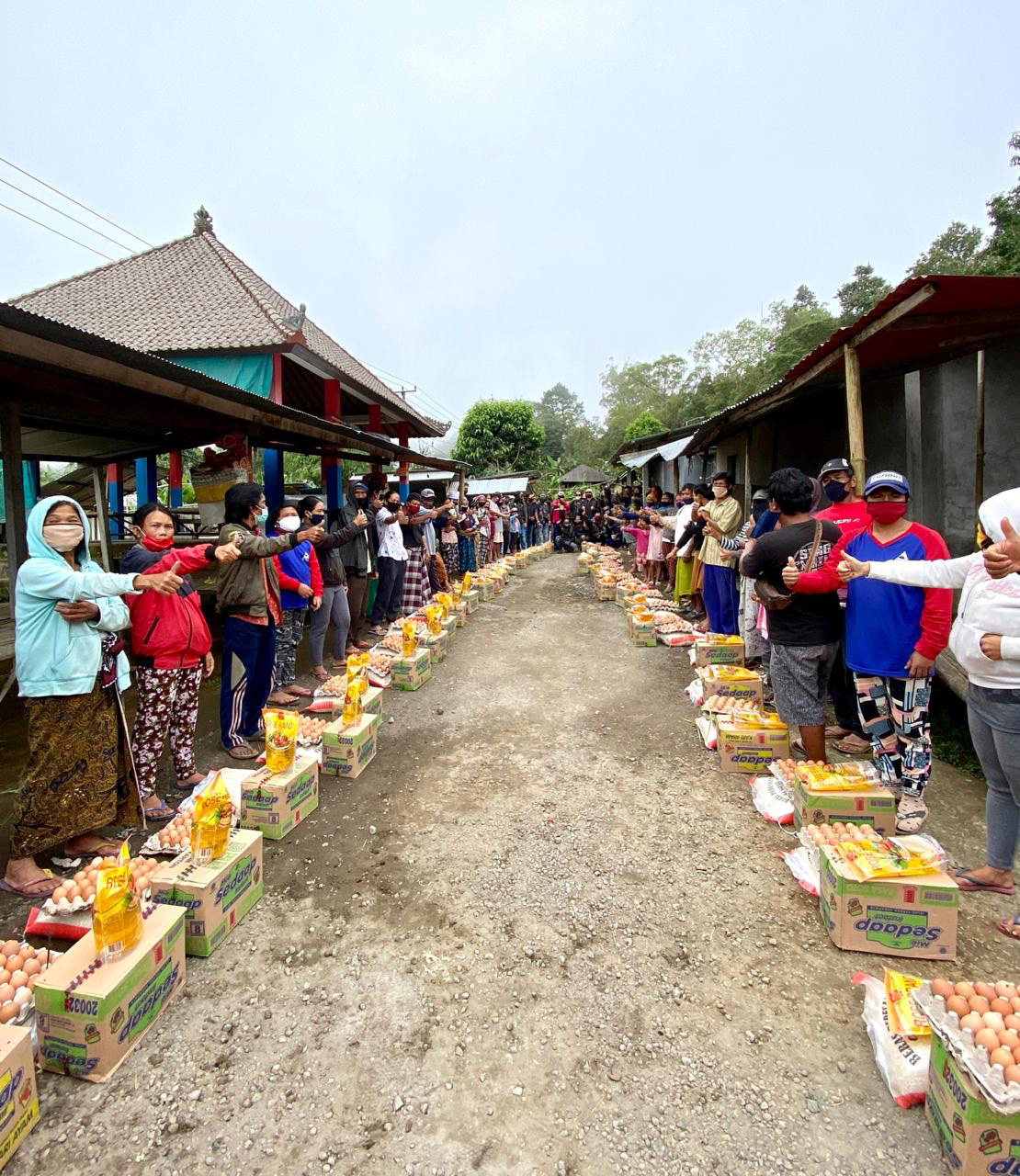
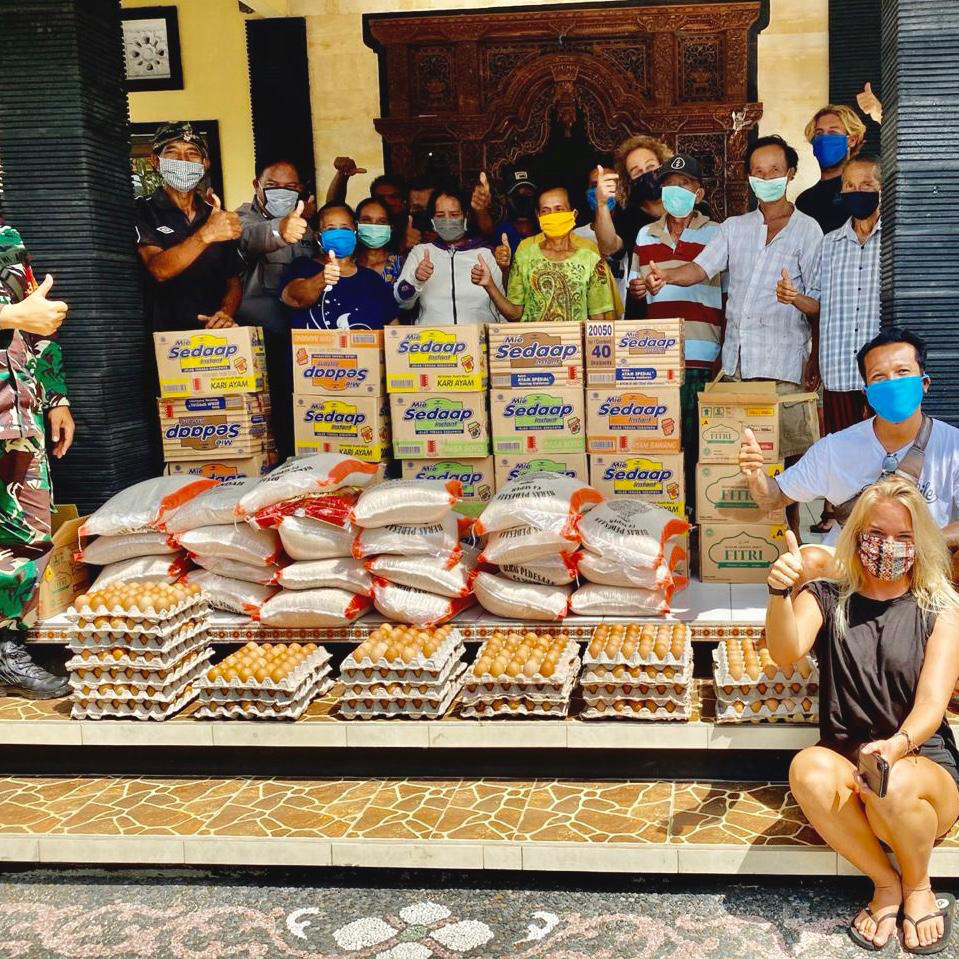
(Left) Elderly recipients of food aid in Tabanan Regency. (Above) The People Must Makan distribution team in a village in the Tabanan Regency. That day they fed 50 families with food to last two weeks. Photos: David Biner
According to the Secretary of the Tourism Ministry Ni Wayan Giri Adnyan, Bali could be open for tourism by October, with revitalising and promotional work to begin in June.
To respond in the meantime, the Indonesian Government has provided a Social Safety Net programme for people financially impacted by the pandemic, covering non-cash food assistance and cash transfers. But in order to receive the assistance, people need an identity card issued by the provincial government in the region where they reside. Workers in Bali with an identity card from other provinces therefore missed out.
“They were not eligible for receiving cash or non-cash support from the Bali provincial government,” Kosijungan said. “Around 1,700 people who lost their jobs in Bali returned to their homes in East Java in order to access the social safety net programme.”
These people had the financial means to return home and did so prior to the ban of internal travel.
According to the Ministry of National Development Planning, regional officials had been using a Village Information System to identify people who are eligible for each social assistance programme. But according to officials from the Indonesian Directorate of Poverty Reduction and Social Welfare, “millions” of personal data points are either incomplete or inaccurate, complicating distribution.
With so many falling through the government’s social safety net, there has been a surge in charities and local foundations across Bali stepping in to fill the gap.
David Biner is a photographer from Phoenix, Arizona in the US. He set up a charity to deliver food packages to families when he saw there was a hole in the social welfare system.
Biner, who runs the non-profit organisation The People Must Makan (“to eat” in Bahasa Indonesian), explained that in order to receive government aid in Bali, residents have to be registered with their banjar, a level of village organisation in Bali. The banjar then distributes the government aid as well as money from private donations.
“I saw lists of how many families were able to obtain this and the criteria, and there were so many that weren’t able to,” the photographer said.
Biner said there were about 800 families in his village of Ungasan alone who were unable to receive aid. The population of Ungasan makes up less than 0.5% of Bali’s total population.
“Just a week or so later we were able to do a distribution to 220 families in one village that weren’t going to receive any help,” he said, adding that the people who’d come to Bali from other islands for work were especially hard-hit. “We’re months in and the government has distributed a very measly amount of assistance and aid.”
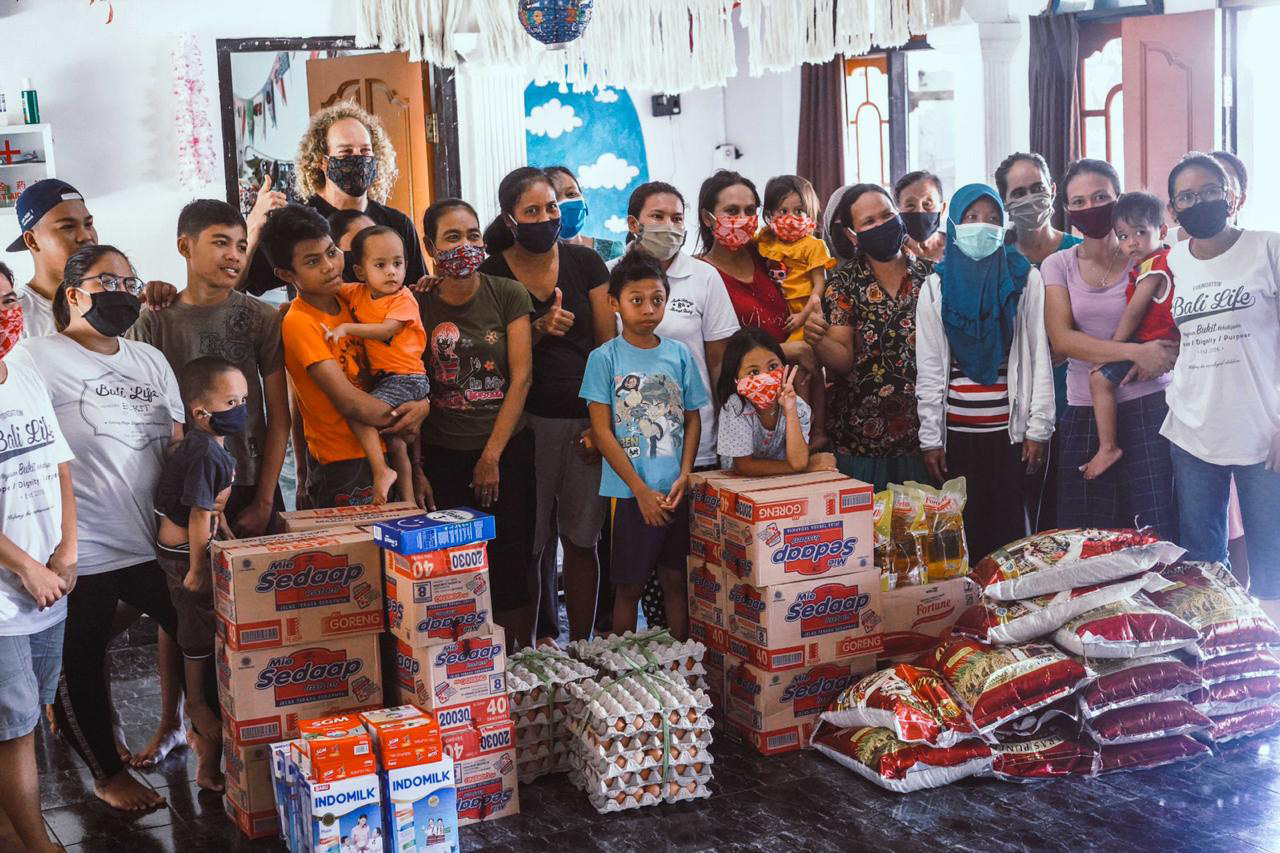
Biner has been living in Bali for more than three years. When the outbreak began to dominate social media in March, he said he became overwhelmed with all the negativity circulating the internet, and how little was being done. He decided to use his profession and his connections to give back to the community he’d received so much from, posting on social media saying he would give away one of his favourite photos he’d taken of the island to each person who donated.
What started as a small idea soon became a charity that enabled Biner to deliver packages to hundreds of families. He set up a GoFundMe page and in just under two months has raised almost $20,000. With the help of the Bali Life Foundation, he has used the funds to purchase food and distribute it. The money raised has fed over 1,300 families, with each package lasting two weeks.
“The economy has more or less toppled”, Biner said, explaining that many locals have been out of work for months. “These people live on a day-today-day basis, it’s been a struggle for Balinese residents as well as these migrant workers that have been living in Bali.”
Although Bobo is able to stay with her friend without paying rent, she says she feels badly about not contributing to the small household. When times were better and tourists thronged to Bali’s beaches and resorts, she would send money back to her parents to ease their lives in Sumba.
But with no money left and no work available until the tourism industry is resurrected, Bobo is left waiting for her ticket home.
“I really want to go back to my family,” she said, “but I can’t go.”


